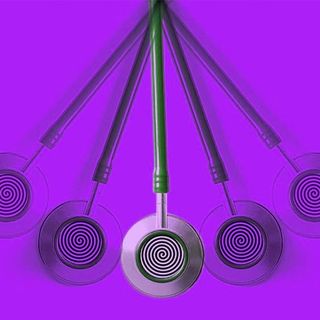Loss, void, pain, suffering, and emptiness – these are a few of the words typically used to describe what is grief. To grieve is to experience a tragedy, to lose someone you love or care about; for most of us this is our understanding of grief.
Recently, my understanding of this phenomenon has changed. It is possible – common, even – to grieve intangibles as well.
The aim of this article isn’t to trivialize grief in its traditional sense. The loss of a person isn’t comparable, in its depth, to the loss of faith or an aspect of yourself. But the common denominator is loss, and our response to loss, any loss, is the humanity-defining emotion of grief.
It’s a matter of degree; our response to the loss of a person can be thought of as a macro-grief, and our response to other losses, as micro-grief. And recognizing grief in all its permutations is essential to coping with grief’s twin: change.
One of the most common micro-griefs is the grieving of lost time and innocence – essentially, the grief of growing up. Aging and experience may bring us experience and wisdom, but it also brings a loss of familiarity and a loss of irresponsibility. We crave the past because it is familiar, and perhaps we were happier when we knew less.
Ironically, despite the expanded knowledge that comes with age, we are not always able to recognize when we are mourning the loss of knowing what is expected, needed or desired.
“I am not sure what is happening,” a 25-year-old client said once. “I have a job and a good boyfriend but there are these moments where I feel absolutely dreadful about being old enough to have a job. ”
It can also be difficult for others to recognize as well. We often manage this grief by reminiscing and holding on to objects from the past. Parents, friends, may mistake this kind of mourning for immaturity, but it is actually a vehicle for maturity; recognizing our grief allows us to move on.
Mourning the loss of innocence is not that different from grieving a lost world view – perhaps one of safety, or tolerance, or equality.
“I remember feeling out of my body when I read the article about how some political leader suggested that women should stay home post dark,” a 30-year-old female client once told me “I remember feeling sick. I thought this can’t be right, it just can’t. Why… how could someone think like this and this person isn’t even that old.”
The loss of an ideology or philosophy can be one of the most complex things to mourn. These govern our moral compasses and give us hope. We grieve when we hear about discrimination, abuse, or rape, not simply because we are angry for the victims, but because our belief in the value of human life has been challenged, our sense of hope and goodness, lost.
We can mourn many, small, daily things – griefs for losses we don’t fully recognize, even for losses we are glad of.
“I was so happy to be pregnant. I had always imagined my pregnancy… what it would be like and how it would play out. I just never imagined the baby, or me with the baby, ,” said a 33-year-old client who has a 3-year-old son. “Now that the baby is here, everything is just unpredictable. I miss my routine… my me-time. Don’t get me wrong, I love my baby – but I miss some stuff, you know?”
Grief often rears its head when our feelings are diametrically opposite to one another. We can love someone but miss aspects of our life before the person came into it. Just as we can mourn the loss of the traditions that marked older lifestyles, while still appreciating modernity.
“They just do not do it anymore. I tell [my daughter] it’s auspicious to wear at least one red bangle but she says that it is no longer done,” said one 72-year-old client. “The red bangle symbolizes life and fertility… but it isn’t fashionable today. ”
To grieve is a natural, involuntary phenomenon, however society has set standards about what is appropriate to mourn. These parameters are often limiting – they create a stigma around grief as an emotion and feed into stereotypes. For example, we often judge mothers for missing a life without their child, and mothers often feel guilty about these very emotions. Older people may feel judged for missing old-fashioned ways, or left behind by a world that scoffs at what they’ve experienced. Acknowledging that it is natural to grieve, even when the new reality in general makes you happy, is instrumental in coping with change.
The grief of lost innocence is what allows us to quite literally change and grow into an adult. The grief of lost goodness, hope, or belief expressed in marching and movements, can make change happen, catalyze actions and policies that ensure that the next generation won’t feel the loss, hopelessness or fear in the same way we have experienced.
Grieving is the vehicle of change. The irony that we grieve loss, which in turn can facilitate gainful change, is not lost on me, but perhaps it speaks to the complexity of the human mind. Perhaps we can reconcile that conundrum, if we change the narrative around grief as we have for other emotions: Today, the psychological community talks about how there are no wrong emotions, and there is truth in that. We need sadness to understand happiness; similarly, we need to grieve in order to grow.
I hope this article makes us think of grief differently. I hope it encourages us to move away from thinking of grief as an emotion that manifests itself only when tragedy occurs, to looking at grief as an everyday emotion. By being mindful of grief in the everyday, perhaps we better equip ourselves to guide and channel change, big or small, rather than be subjected to it, and to grow – as individuals and as a society.




